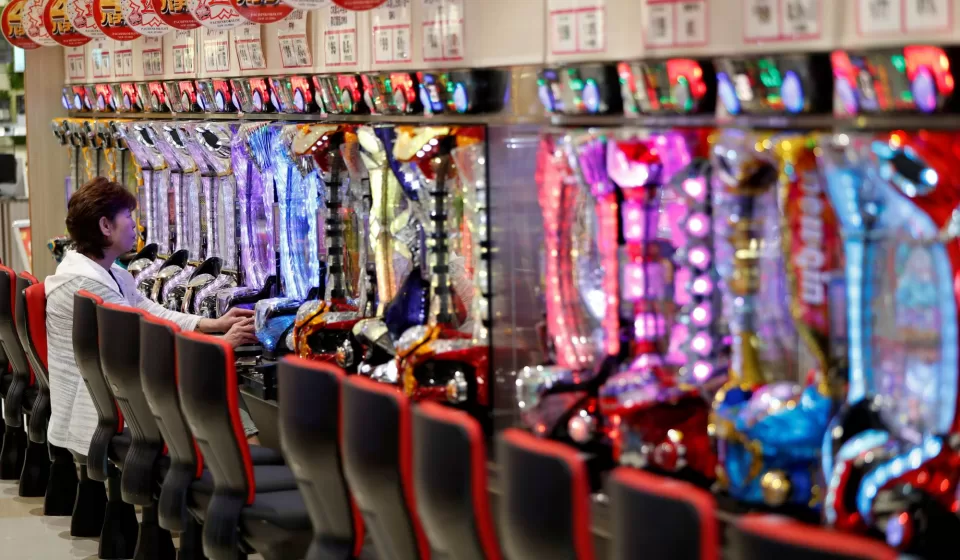Japan has recently introduced new gambling addiction prevention laws in response to rising concerns over gambling-related harm. These laws aim to create a safer environment for citizens by promoting responsible gambling, providing support for individuals struggling with addiction, and regulating gambling establishments to ensure compliance. By balancing the economic benefits of the gaming industry with public health priorities, Japan is taking a proactive approach to address gambling addiction, setting an example for countries worldwide in responsible gaming practices.

Japan’s latest gambling law, passed to address rising concerns surrounding gambling addiction, introduces measures aimed at promoting responsible gaming. This legislation seeks to balance the economic benefits of gambling with the need to safeguard public health and well-being.
Key Objectives of the Law
- Implement effective prevention strategies to combat gambling addiction.
- Educate the public on the risks associated with gambling.
- Establish support systems for individuals affected by gambling addiction.
- Regulate gaming facilities to ensure adherence to strict guidelines.
Gambling addiction in Japan has emerged as a significant societal issue, prompting the government to take action through this new law. Studies indicate that the prevalence of gambling-related problems has increased, impacting not only individuals but also families and communities.
In response, Japan’s gambling addiction prevention laws aim to:
- Raise awareness about the dangers of gambling.
- Provide necessary resources for treatment and recovery.
- Foster a supportive environment for individuals seeking help.
With these goals in place, Japan strives to create a healthier relationship with gambling, ensuring that entertainment is balanced with the responsibility of care for its citizens.
Scope of the New Law
Definitions and Terminology
The Japan gambling addiction prevention laws introduce several key terms essential for understanding their framework. Here are some definitions:
- Gambling Addiction: A psychological disorder characterized by an uncontrollable urge to gamble.
- Prevention Measures: Initiatives designed to reduce the risk and incidence of gambling addiction.
- Support Services: Resources and assistance provided to individuals affected by gambling issues.
Applicable Entities and Individuals
This legislation is designed to cover a broad spectrum of entities and individuals, ensuring extensive reach:
- Establishments: All businesses that engage in gambling activities are subject to these laws.
- Organizations: Non-profits and community groups that advocate for gambling addiction awareness.
- Individuals: Anyone potentially affected by gambling, either directly or indirectly.
Geographical Restrictions
The Japan gambling addiction prevention laws apply nationally, with specific focus areas outlined:
| Region | Overview |
|---|---|
| ⚠️ Urban Areas | Higher concentration of gambling establishments requiring stricter oversight. |
| ? Rural Areas | Community-based initiatives to promote education and prevention. |
Through these regulations, Japan aims to address and mitigate gambling-related issues, fostering healthier communities. The laws offer a structured approach to dealing with gambling addiction while engaging various societal sectors.
Measures to Combat Gambling Addiction
Support Programs and Resources
In Japan, various initiatives are in place to assist individuals grappling with gambling addiction. These programs often provide essential resources and guidance:
- Counseling Services: Confidential support to help individuals understand and address their gambling behaviors.
- Hotline Assistance: A dedicated number for immediate support and advice.
- Community Outreach: Engaging local communities to raise awareness and share knowledge about gambling issues.
- Educational Workshops: Providing information on the risks associated with gambling to prevent addiction.
Public Awareness Campaigns
Raising awareness is critical for the prevention of gambling addiction. The Japanese government and various NGOs run public campaigns aimed at:
- Highlighting the dangers of gambling disorders.
- Educating the public about the warning signs of gambling addiction.
- Promoting responsible gaming practices.
These campaigns use various media outlets to reach a broad audience, ensuring the message resonates with all age groups.
Collaboration with Healthcare Providers
Integration with the healthcare sector is essential to enhance treatment for gambling addiction. Collaborative efforts include:
- Training for Healthcare Professionals: Equipping providers with the skills to recognize and aid individuals suffering from gambling issues.
- Referral Systems: Creating pathways for patients to access specialized gambling treatment services.
- Joint Research Initiatives: Exploring the psychological impacts of gambling to innovate effective interventions.
Such collaborations represent a holistic approach to tackle Japan gambling addiction prevention laws, creating a healthier society.
Enforcement and Regulation
Government Oversight Mechanisms
Apacaff | In Japan, the government takes stringent measures to regulate gambling activities. The primary oversight bodies are tasked with ensuring compliance with the Japan gambling addiction prevention laws. These bodies implement a range of strategies, including:
- Regular audits of gambling establishments
- Monitoring advertising and promotional practices for compliance
- Providing educational resources to the public about responsible gambling
Penalties for Non-compliance
Failure to adhere to the gambling regulations can result in severe repercussions. The penalties include:
- Fines for establishments failing to follow guidelines
- Temporary closures for repeat offenders
- Potential criminal charges for serious violations
Licensing Requirements for Gambling Institutions
Gambling establishments must adhere to rigorous licensing criteria to operate legally. The key requirements include:
| Requirement | Description |
|---|---|
| Background Checks | Owners and key personnel must pass thorough background investigations. |
| Financial Documentation | Institutions must provide detailed financial records to demonstrate stability. |
| Responsible Gambling Programs | Institutions are required to implement programs aimed at preventing gambling addiction. |
Through these measures, Japan strives to maintain a balanced approach to gambling while prioritizing the welfare of its citizens.
Impact Assessment
Expected Outcomes of the Law
The implementation of Japan’s gambling addiction prevention laws is anticipated to yield several positive outcomes, including:
- A decrease in gambling-related issues
- Enhanced public awareness about responsible gambling
- Improved support systems for individuals struggling with addiction
- Greater funding for rehabilitation programs
Potential Challenges and Criticisms
While the law aims to mitigate gambling addiction, it faces potential challenges and critiques:
- Concerns about enforcement and compliance among gambling establishments
- Possible backlash from the gambling industry regarding restrictions
- Questions about the effectiveness of the law in changing behavior
Comparative Analysis with Other Countries
In examining Japan’s approach, it’s helpful to consider how other countries tackle gambling addiction prevention:
| Country | Strategies | Results |
|---|---|---|
| Australia | Public education campaigns, self-exclusion programs | Reduction in gambling rates by 15% |
| United Kingdom | Strict advertising regulations, funding for treatment | Improved access to support services |
| Sweden | Comprehensive online gambling regulations | Lower rates of gambling addiction |
By learning from these examples, Japan can refine its strategies to more effectively combat gambling addiction.
Public and Expert Reactions

Responses from Gambling Advocacy Groups
Various gambling advocacy organizations have voiced their opinions on Japan’s gambling addiction prevention laws. Their insights are pivotal in shaping public awareness and policy adjustments. Key points include:
- Support for Enhanced Measures: Advocacy groups are largely in favor of more robust gambling addiction prevention frameworks.
- Awareness Campaigns: They emphasize the need for educational initiatives to inform society about gambling risks.
- Collaboration Calls: There’s a strong push for collaboration between government officials and experts in mental health.
Opinions from Mental Health Professionals
Mental health experts have critically assessed Japan’s current approach to gambling addiction. Their views highlight the necessity of a comprehensive strategy. Main takeaways from their discussions include:
- Need for Early Intervention: Professionals recommend early detection and treatment of gambling addiction to reduce its prevalence.
- Comprehensive Support Systems: There is a call for developing support systems that address both prevention and treatment.
- Integration of Services: Advocates suggest integrating mental health services into gambling oversight frameworks.
General Public Sentiment
The general sentiment among the public regarding Japan’s gambling addiction prevention laws remains mixed. Insights reveal:
- Concerns About Accessibility: Many citizens express worry that increased accessibility to gambling may lead to higher addiction rates.
- Desire for Clear Regulations: There is a strong demand for clear and transparent regulations governing gambling activities.
- Public Education: The public supports initiatives for educational programs that focus on responsible gambling.
Future Outlook
Long-term Goals of the Legislation
The Japan gambling addiction prevention laws aim to create a safer environment for all citizens. The long-term objectives include:
- Implementing comprehensive educational programs on responsible gambling practices
- Establishing robust support systems for individuals seeking help
- Encouraging collaboration among local governments, organizations, and stakeholders
Possible Amendments or Enhancements
As society evolves, the Japan gambling addiction prevention laws may require reevaluation and improvement. Potential amendments could involve:
- Adjusting regulatory frameworks to adapt to emerging gambling trends
- Introducing stricter penalties for non-compliance
- Enhancing funding for research on gambling behaviors and prevention strategies
Forecasting Trends in Gambling Behavior
Monitoring shifts in gambling habits is crucial for predicting future challenges. Experts anticipate the following trends:
| Trend | Impact |
|---|---|
| Increased online gambling participation | Higher need for digital prevention measures |
| Integration of AI in gambling systems | Potential for better tracking of risky behavior |
| Growing awareness of mental health | More emphasis on responsible gambling initiatives |
Conclusion
Recap of Key Points
In summary, addressing Japan gambling addiction prevention laws is crucial for ensuring the safety and well-being of individuals at risk. Here are the key takeaways:
- Understanding the regulations and support systems in place.
- Recognizing the signs of gambling addiction.
- Implementing measures for prevention and awareness.
The Importance of Responsible Gambling
Responsible gambling is essential in fostering a safe gambling environment. By promoting awareness and education, we can:
- Reduce the incidence of gambling-related harm.
- Encourage healthy habits when engaging in gambling activities.
- Support individuals who may be struggling with addiction.
Call to Action for Community Involvement
It’s vital for communities to band together to combat gambling addiction. Here’s how you can contribute:
- Participate in local awareness programs aimed at educating the public.
- Support local initiatives that focus on rehabilitation and prevention.
- Advocate for stronger Japan gambling addiction prevention laws.
By working together, we can create a healthier and more responsible gambling landscape in Japan. Let’s take action today for a brighter tomorrow!












